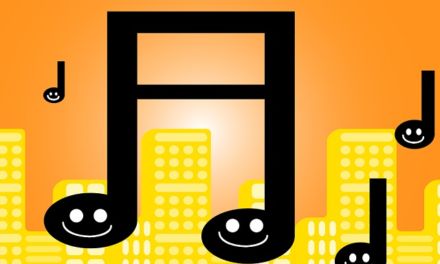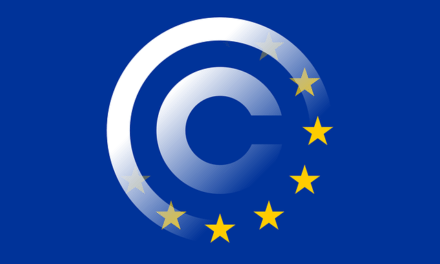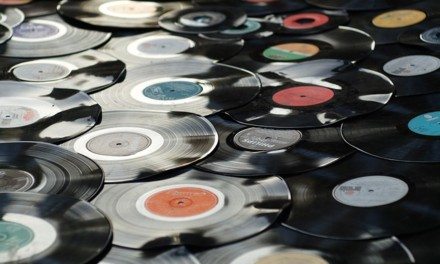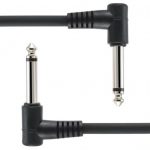Any links on this page that lead to products on Amazon are affiliate links and I earn a commission if you make a purchase. Thanks in advance for your support!
Music Business 101: Making Money In Music Through Music Licensing
Though it’s never been easy to make money in the music business, today there are more opportunities to make money than ever before!
And one of the best ways is through licensing your music for use in television and film productions.
While song downloads and record sales have slowed dramatically, the use of songs and music tracks in TV shows, movies, games, commercials, and more has substantially expanded.
All this music must be licensed by music users like broadcast networks, TV production companies, etc. from the owners, publishers, or agents of the music. This creates many opportunities to generate income from your works.
Music Licensing
Music licensing has become a multi-million dollar business in the last decade. Increasingly, music is being used in almost every facet of business and marketing, as well as for entertainment. Almost everywhere you hear music, that music has been licensed for use and for performance.
For example, songs heard on the radio, on CDs, in films, in Broadway plays, in an elevator, even music played in a restaurant or a roller rink – these are all examples of music that has been licensed.
As a creator and/ or publisher of music, licensing is a crucial aspect of succeeding in the music business. More and more films, television shows, trailers, promos, and commercials are turning to music they can license vs. commissioning new original works.
As the only growth segment in the music industry, creating songs and instrumental tracks for licensing offers income potential that is unrivaled in the music business.
By understanding what licensing is and how it’s done, you can take part in this lucrative market.
Licensing Music Goes Mainstream
There used to be a stigma against licensing music for commercial purposes – it was considered a sellout by artists and publishers alike for many years.
That changed in the early 2000s when electronic musician Moby successfully licensed every track from his Play CD.
Not only did he make a lot of money from licensing and performance fees, but the widespread media exposure pushed the album to sell over 12 million copies worldwide, unheard of for an electronic artist.
After seeing that, it didn’t take long for established artists to get in on the action.
Cadillac licensed Led Zeppelin’s Rock and Roll, and Apple hooked up with U2 for a series of commercials.
This then led to many artists and bands getting in on the licensing game.
If fact, many of today’s well-known pop and rock artists like Ariana Grande, Christina Perri, Ingrid Michaels, The Fray, and Imagine Dragons had their big break when their music was featured on a TV show.
With more and more artists allowing their music to be used to sell products, it became acceptable to align music with consumer brands without being labeled a sellout.
Production Music Libraries
Music for television became (and still continues to be) the main growth area in music. Estimates put the amount of licensed music at more than 60% of the music heard on television.
As more and more music was being licensed, production music libraries sprang up to cater to the growing demand for quality music.
Once regarded as the home of poorly produced music tracks, they grew quickly as the quality of music being created by composers, songwriters, and producers in small project or home studios started to rival big-budget professional music productions. Today music libraries provide a significant portion of the music used in TV and film productions.
I started my Audio Addiction Music library around 2005 and over the last decade I’ve had tens of thousands of placements of instrumental tracks and songs in TV shows, films and commercials.
Because of their growing influence, music libraries are now signing artists, once something that only record companies had the power to do.
In fact, many of the bigger name film composers, TV composers, and recording artist and producers are now producing music content for music libraries.
Firstcom, a top-tier music library, won a Grammy in 2015 for Best Latin Album, and it was a production music release!
The major record labels got into the action, buying up many of the lucrative independent libraries. Today, there are very few large independent music libraries left in the U.S.
Who Uses Licensed Music?
Below is just a small sampling of some types of users, products, and venues that must obtain permission through a license to use music:
Direct Music Users:
- Television and radio station broadcasters
- Cable TV broadcasters (Netflix, Amazon, Epix)
- Motion picture production companies
- Television production companies
- Record labels
- Advertising agencies (for their advertising clients)
- Internet broadcasters and websites
- Muzak
- Sirius XM Radio
Licensed Products:
- CDs/ Cassettes
- Videos and DVDs
- Karaoke tapes
- Videogames
- Sheet music
- Music boxes
Venues:
- Restaurants
- Roller Rinks
- Concert Halls
- Airports
Additional sources of licensing income:
- Corporate – in-house productions, branding spots, website
- In flight entertainment
- Retail – music for chains such as The Gap, Limited, Abercrombie and Fitch
- Music channels – for spas, tanning salons, hospitals, etc.
- Online productions – webisodes, web series
- Phone products – Ringtones, mobisodes
- Specialty: Toys. Greeting Cards, Holiday items – surprisingly lucrative, the Singing Fish that came out some years ago paid a mechanical royalty on each fish sold.
8 Different Types Of Licenses
There are eight different types of licenses that are required for the various kinds of music uses:
Synchronization License (also known as a sync license) – for the use of a musical composition in the soundtrack of an audio/visual work for theatrical exhibition or television.
Learn More: Music Publishing And Licensing 101: Sync And Master Use Licenses
Master Use License – for the use of a specific sound recording in the soundtrack of an audio/visual work for theatrical exhibition or television.
Learn More: Music Publishing And Licensing 101: Sync And Master Use Licenses
Mechanical License – for CDs, records, and digital downloads.
Learn More: Music Publishing And Licensing 101: Mechanical Licenses
Performance License – for non-dramatic public performances. This includes performances on radio, TV, clubs, restaurants, hotels, concerts, airports, etc.
Learn More: Making Money In Music: Performance Royalties And ASCAP, BMI And SESAC
Videogram License – for video cassettes, laser disks, and home video products
Print License – for sheet music, music folios, songbooks, and other printed editions.
Grand Rights License – for dramatic use (musical comedy, play, opera, operetta, or ballet).
New Media License – for computer software, Internet use, games, etc.
Exclusive And Non-Exclusive Licenses
There are two basic types of licenses. A license can be either exclusive or non-exclusive.
Exclusive License
An exclusive license grants the licensee the right to the exclusive use of the music.
An exclusive license can be specified and limited, however, by various factors such as territory, use type, media, duration, etc.
For example, you can license music to a workout DVD where they have exclusive right to use the music in workouts, but you retain the rights to place the music in film/TV projects.
In another example, you could grant a movie production company the exclusive right to use your music cue during the film company’s logo, but for performances in the United States only. You would still be free to license this music cue for foreign use.
Another common example is to grant a reality TV production company the exclusive right to use your music cue throughout a particular TV series, but you retain all performance rights, so you collect both writer and publisher royalties from your performing rights organization.
Non-Exclusive License
A non-exclusive license grants the licensee the right to the non-exclusive use of the music.
You are free to license the music without limitations to as many users as you can.
Like exclusive licenses, non-exclusive licenses can be specified or limited:
- by time periods (annually, 13 weeks, etc.),
- in certain territories (the U.S. only)
- in certain media (TV only, downloads only)
Retain Your Performance Rights!
If you are a songwriter or composer, no matter if you do an exclusive or non-exclusive license, you want to retain your performance rights as much as you possibly can.
Performance royalties generated by performances of your music are where the bulk of your income will come from with placements in TV and film.
Generally, when licensing music cues or songs for TV and film productions, you should make sure that the licenses are non-exclusive. This is the generally accepted practice.
Music libraries are in the business of licensing cues on a non-exclusive basis. Exclusive licenses would put them out of business because they would generally only have one “home” for each music cue.
This is why you sometimes hear the same music cues pop up on different shows. The library is licensing the same music to multiple TV networks or TV production companies.
I remember hearing a radio ad for a major phone company that used a hip jazz bass track, followed by the same music track on a radio ad for a major gasoline company, followed by the same music for an entirely different company.
This was not ideal for advertisers who continually strive for an individual brand look and sound for their products. But it was a great deal for the composer and publisher of that track!
Who Can License Music?
Only the copyright owner (the publisher of a work or an authorized agent) can legally license music.
Because copyright is so important to understand, it’s the subject of the next article…
Up Next: Music Business 101: How to Your Copyright Music (For Composers & Songwriters)
Check out my complete list of music business articles:
- Music Business 101: Making Money In Music Through Music Licensing
- Music Business 101: How to Copyright Your Music (For Composers & Songwriters)
- Music Publishing And Licensing 101: Sync And Master Use Licenses
- Music Publishing And Licensing 101: Mechanical Licenses
- Making Money In Music: Performance Royalties And ASCAP, BMI And SESAC















Hi Michael,
Thank you for this lovely article. I now have a 4th album, “Everything In Good Time”.
https://open.spotify.com/album/5RHPPSDhiiYpmt55p1ONeL?si=i-0-CNQ1SqWGYejYu06fmA
I have the instrumentals for you as well as stems.
You licensed by instrumental to “Another Me” and called it “Secret Heart”.
Good to see you writing how to articles, and I would be interested to learn more about the investment tips as well.
http://www.kamalinden.com
Awesome write up. I’m a royalty free musician myself, and I’ve been writing royalty free music for a while now. A year ago, I decided to start a royalty free music company with some friends of mind.
We’re just began accepting music from musicians. We’re completely non-exclusive, and we make it incredibly easy for musicians to upload their music.
Check out the early access link here (https://www.musicgrid.com/?… – you can upload your tracks in minutes!
Hi Sami,
I just sent you an email through your site. Please explain “Royalty Free”. How does this benefit the artist?
Thanks.
Kama Linden
https://open.spotify.com/album/5RHPPSDhiiYpmt55p1ONeL?si=i-0-CNQ1SqWGYejYu06fmA
Thanks for clear and explanatory article!